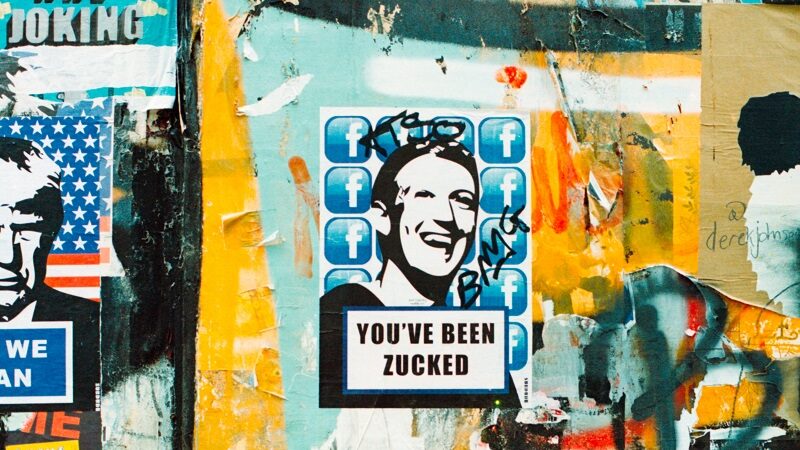46 US states as well as the District of Columbia and the US territory of Guam filed a Facebook lawsuit on Wednesday. The accusation: Facebook has too much power.
After initial rumors and media reports about a possible lawsuit against Facebook in the U.S., 46 U.S. states and the District of Columbia (D.C.), as well as the U.S. territory of Guam, officially filed the lawsuit yesterday.
In it, they accuse Facebook of not only having established a disproportionate social media monopoly, but also of having obtained and maintained this supremacy by unfair means.
Facebook lawsuit: These are the allegations
In several subsections, the plaintiffs allege that Facebook is distorting competition. According to them, the problem lies in Facebook’s business model.
Since the platform is free for users, Facebook earns its money through ads that companies place on the platform.
But Facebook uses unfair methods to keep these ad formats interesting for companies and lucrative for Facebook, the Facebook lawsuit says.
First, Facebook aims to keep users on the platform as long as possible and thus collect relevant user data. The more data Facebook collects, the more precisely (and therefore more successfully) companies can design their ads – and the more money Facebook earns from them.
Secondly, Facebook is also very aggressive when it comes to outmaneuvering competitors.
Anyone who resists will feel the “wrath of Mark”.
As soon as a network becomes big enough to compete with Facebook, Facebook swallows the competitor.
If that doesn’t work, Facebook likes to copy popular features of its competitors, as critics have often complained.
In the statement of claim, Facebook founder Mark Zuckerberg is quoted directly as evidence of the aggressive takeover strategy. According to the complaint, Zuckerberg wants to “neutralize competitors. His strategy in doing so? Offering competitors a price that is “high enough that they have to consider it.”
Allegedly, Facebook has made it very clear to competitors behind the scenes that – should they not want to sell – they would feel the “wrath of Mark”.
The plaintiffs specifically mention Facebook’s acquisitions of Instagram and WhatsApp. Facebook acquired Instagram in 2012 for around one billion US dollars. Two years later, WhatsApp was added for just under 20 billion US dollars.
The purchase was even approved by the EU Commission at the time. However, Facebook later had to pay a fine for it. The company initially claimed that it could not merge the user data of the two platforms, but later found ways to do so.
Through this – allegedly unfair – strategy, Facebook had gradually gained an unfair competitive advantage. And, as another allegation in the Facebook lawsuit, the network used this advantage to harm both users and advertisers.
How Facebook monopoly hurts users and businesses
Every day, more than half of the U.S. population aged 13 and older logs on to Facebook. The high number of users, combined with a lack of competition, gives Facebook the ability to arbitrarily decide how to collect and use the personal data of these users.
Since there are few alternatives for social media users, they accept all this without turning away from the platform. The consequence for users: a diminished user experience, little control over how their personal data is used, and less choice on social networks.
Even advertisers suffer from Facebook’s monopoly, the indictment says. For one thing, profits are not transparent enough. For another, offensive content on Facebook would damage brands’ reputations.
For all these reasons, the states want to sue Facebook. In doing so, they want to stop Facebook’s anti-competitive stance and avert the damage that Facebook is doing to the economy and to citizens.
The U.S. Federal Trade Commission (FTC) has filed a separate lawsuit that focuses on Facebook’s acquisitions of WhatsApp and Instagram.
Zuckerberg denies allegations
Mark Zuckerberg has already denied the accusations in advance. He emphasized that Facebook does have many serious competitors.
Moreover, he said, it is not true that the acquisitions of other social networks have given Facebook a dominant position. In his opinion, Instagram & Co. only became the dominant networks they are today because of Facebook.
What can the Facebook lawsuit really bring?
The question, of course, is: What can the Facebook lawsuit ultimately bring?
There are several possible scenarios.
One variant would be that Facebook’s monopoly is shattered and the company may have to hand over networks such as WhatsApp or Instagram. That would be a challenge, at least technically, because Facebook has increasingly merged the platforms in recent years.
But it would also be possible that Facebook would have to change how the platform works. Interoperability of social media sites would be conceivable, for example. This would allow Facebook users to see on the platform what other users are posting on other social networks, such as on Tik Tok, and simply switch between the networks.
But Facebook may also face new, stricter requirements.
Facebook lawsuit just the beginning?
After the U.S. government launched a competition lawsuit against search engine service Google as recently as October, Facebook is now the next tech giant to have to defend itself (yet again).
This could be just the beginning. It seems that the U.S. government’s longstanding relaxed attitude toward big tech companies is now giving way to greater concerns.
This includes concerns about distortion of competition, but also about the growing amount of data that Internet giants have about citizens and their lives.
The FTC has accordingly already set its sights on the next tech giants: Apple and Amazon.










